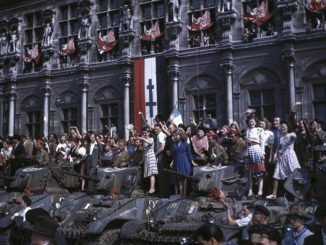An Israeli-owned bulldozer kills 23-year-old American woman Rachel Corrie on March 16, 2003, as she protests a demolition campaign that destroyed over a thousand homes in the Gaza Strip.
Following the death of their daughter, Corrie’s parents filed a civil lawsuit against the state of Israel, asserting she had been intentionally killed—or that the soldier driving the Israel Defense Forces bulldozer had shown criminal negligence. That lawsuit was rejected by a Haifa judge in 2012, who found that the driver had not seen Corrie as she stood in the bulldozer’s path at the village of Rafah. The ensuing internal Israeli military investigation cleared the bulldozer driver of any fault, and the ruling judge decided that Israel could not be held liable because the bulldozer was engaged in a “combat operation.”
In the meantime, Corrie became a martyr and symbol of resistance throughout Gaza. In 2010, Palestinians launched an annual sports championship in Corrie’s memory. Corrie’s story has been told and interpreted in a variety of mediums over the past two decades, including in poetry, documentaries and a series of plays. Her parents launched the Rachel Corrie Foundation for Peace & Justice, a non-profit supporting “grassroots efforts in pursuit of human rights and social, economic and environmental justice,” emphasizing efforts to end Israeli apartheid.
In a letter sent to her family from Gaza, Corrie described the Palestinian suffering she had witnessed shortly before she was killed:
“No amount of reading, attendance at conferences, documentary viewing and word-of-mouth could have prepared me for the reality of the situation here,” she wrote. “You just can’t imagine it unless you see it.”





Be the first to comment